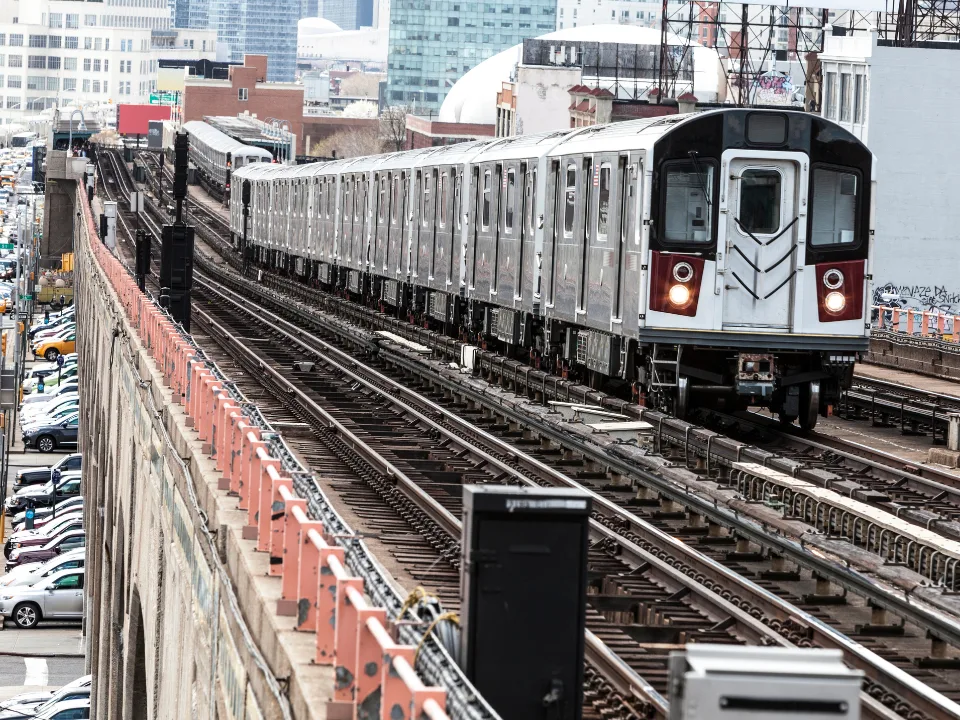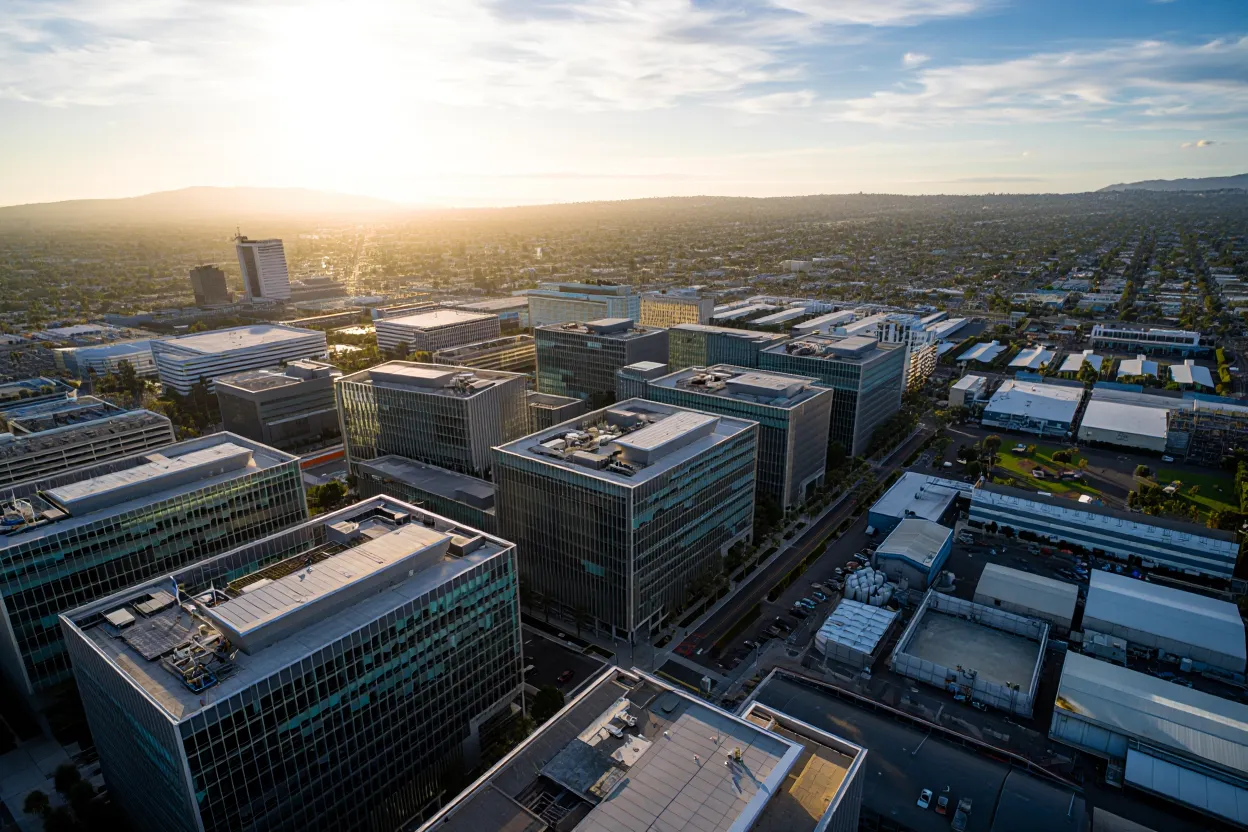- Detroit tops the nation with a 21.95% gross rental yield, making it the most attractive large city for cash flow–focused investors.
- San Jose, CA, ranks last among major metros, with a meager 3.08% yield due to soaring home prices far outpacing rental income.
- Midsized markets like Jackson, MS (20.5%) and Birmingham, AL (14.9%) outperform many large cities, offering high cash flow with lower upfront investment.
- Small Midwestern cities like Youngstown, OH, and Flint, MI, boast yields over 20% but come with higher vacancy risks and economic volatility.
- High-priced coastal cities—from Sunnyvale, CA, to Bellevue, WA—offer the weakest rental yields, appealing more to appreciation-focused investors.
A Tale of Two Cities
A 3-bedroom brick home in Seattle’s Broadview neighborhood rents for $4,000 a month—but with a $1M valuation, its gross yield sits below 5%. Meanwhile, the same rent in Dallas could net investors double the return due to lower home prices. It’s a sharp illustration of how location can make or break single-family rental (SFR) investment returns, according to Rentometer’s latest report.
Gross rental yield—a property’s annual rent divided by its purchase price—is a key benchmark for assessing cash flow potential. While appreciation and local regulations matter, too, yield provides a quick look at where your dollar stretches furthest. Here’s how the top and bottom markets stack up in 2025.
Top Large Markets for SFR Yield
- Detroit, MI – 21.95%
Low home prices + solid rent = top-tier yield. With average home prices just over $71K and monthly rents above $1,300, Detroit offers the highest gross rental yield among large cities. Urban revitalization and growing interest from major employers signal longer-term promise—but high property taxes and crime remain key considerations. - Cleveland, OH – 16.59%
Cleveland combines low home prices ($110K) and steady rents ($1,500) for strong returns. A rising tide of out-of-state investors sees opportunity in its revitalized downtown and improving infrastructure. - New Orleans, LA – 12.77%
Cultural cachet meets cash flow. Despite high insurance costs and population decline, average rents above $2,400 on $225K homes deliver solid returns. - Memphis, TN – 12.44%
A logistics and distribution hub, Memphis offers affordable entry prices and high tenant demand but faces high vacancy rates and slow city-level growth. - Baltimore, MD – 12.30%
East Coast investors are eyeing Baltimore for its affordability and proximity to D.C. However, crime and population decline temper long-term appreciation prospects.
Get Smarter about what matters in CRE
Stay ahead of trends in commercial real estate with CRE Daily – the free newsletter delivering everything you need to start your day in just 5-minutes
Other Notables:
- Toledo, OH – 12.22% yield with extremely affordable homes and stable rent prices.
- Corpus Christi, TX – 10.80% yield in a growing Texas city with coastal appeal.
- Laredo, TX – 10.70% yield in a key border city with strong rental demand.
- Dallas, TX – 10.42% yield—a good balance of rent and property value in a booming city and metro area.
- Philadelphia, PA – 10.40% yield with a large renter population and diverse neighborhoods.
Large Cities with the Lowest Yields
- San Jose, CA – 3.08%
Despite tech-fueled demand and sky-high rents, home prices topping $1.6M crush yield potential. - Irvine, CA – 3.33%
High quality of life, but not for cash-flow investors. Home prices near $1.8M drive yields down. - San Francisco, CA – 4.47%
One of the most expensive rental markets in the U.S.—but with too much capital required for too little immediate return. - Seattle, WA – 4.63%
Like many West Coast markets, Seattle is better suited for investors banking on appreciation. - San Diego, CA – 4.83%
Consistent demand, but steep prices limit income potential.
Mid-Sized Cities with Strongest Returns
- Jackson, MS – 20.5%
The strongest-performing midsized city. Average home prices under $71K combined with nearly $1,200 monthly rents create an exceptional gross yield—but high vacancies and infrastructure concerns persist. - Birmingham, AL – 14.9%
With revitalization underway and tech sectors growing, this Southern city offers both value and upside. Investors should note its 15%+ vacancy rate. - Beaumont, TX – 12.7%
Affordable, Gulf Coast-adjacent, and driven by energy industry stability. - Brownsville, TX – 12.2%
A strong rent-to-price ratio in a fast-growing logistics hub near the U.S.-Mexico border. - Peoria, IL – 12.2%
A Midwestern sleeper hit with stable rents and low home prices.
Mid-Sized Cities with the Lowest Yields
- Sunnyvale, CA – 2.23%
Bay Area sticker shock. Despite $4,500+ rents, $2.4M homes torpedo yields. - Bellevue, WA – 2.69%
Proximity to Seattle and Amazon HQ boosts demand, but high prices erase income potential. - Fremont, CA – 2.70%
Classic Silicon Valley—high appreciation potential, low yield. - Santa Clara, CA – 2.80%
A tech hub with limited value for cash-flow investors. - San Mateo, CA – 3.25%
Despite strong rents, yields are suppressed by $1.9M home prices.
Small Cities: High Risk, High Reward
Small cities like Youngstown, OH (23%), Flint, MI (22%), and Gary, IN (20%) deliver eye-popping yields, thanks to extremely low home prices paired with stable rents. But risks—like high vacancy rates and economic volatility—demand thorough due diligence.
Conversely, despite sky-high rents, affluent enclaves like Palo Alto, Los Altos, and Saratoga, CA, hover near 2% yield. These are wealth preservation plays, not income-generating properties.
Final Takeaway
In today’s single-family rental market, the difference between a high-performing investment and a low-return property often comes down to geography. Cities like Detroit, Cleveland, and Jackson offer standout rental yields driven by low home prices and solid tenant demand, making them ideal for cash-flow-focused investors. Meanwhile, high-cost coastal markets—particularly across California and the Pacific Northwest—continue to see rental income lag far behind property values.
For investors looking to maximize income, emerging and midsized markets in the Midwest and South present compelling opportunities. On the other hand, expensive metros may still appeal to those prioritizing long-term appreciation over short-term returns.















